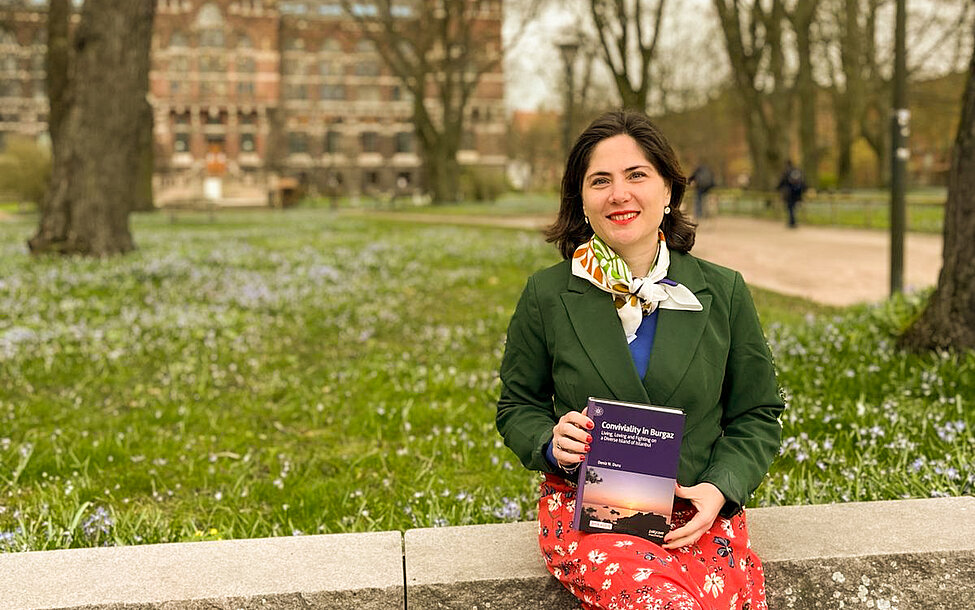Off the coast of Istanbul, in the Sea of Marmara, sits Burgaz (short for Burgazada), one of the Princes' Islands. The roughly 2000 inhabitants come from over twenty ethnic and religious groups and various class backgrounds. Living with differences and sharing that way of life is a staple of the Burgazli identity.
Conviviality is the central concept describing the lifestyle in Burgaz. Often defined as "friendliness" or "sociability", Duru makes the case for a different understanding of the word, derived from Spanish “Convivencia” and meaning "a shared life".
"I describe conviviality as shared ways of living, the production of everyday life and a sense of place through embodying diversity, enjoying, performing and valuing it, as well as letting people, who might have different lifestyles, perform and practise daily life how they want," Duru says.
She underscores that conviviality differs from multiculturalism, which she suggests is a political project emphasising disparity and identity politics. It tends to impede the mixing of cultures and lifestyles. The Burgazli compare multiculturalism to mosaic, which presupposes sustained boundaries between pieces that risk falling out of the bigger picture.
Conviviality is rather like the Turkish marbling art “ebru”.
"In ebru, the boundaries of patterns are fused into each other and hence, while you can see their distinctiveness and differences, they are tightly bound to each other and are not prone to separation, nor destruction," Duru says.
To study what it means to be Burgazli and how they create and experience their social relationships, Duru spent more than 14 months on the island in 2009-2010 and visited the island with short trips until 2023. Through observation, interviews and analysis of locally produced media, she writes stories about solidarity, love and conflict on the island. Being from Burgaz is to experience and value the particular forms of sociality that transform degenerative and segregating forces into constructive understanding and manage the tensions that arise in daily interactions. Like in most other places, social strain is a natural part of life in Burgaz. The continuous effort to resolve it is an essential part of creating conviviality in that it shows the value placed on the shared lifestyle.
Duru also studies the complex impacts of ideology, class and gender in everyday interactions. Class differences, she notes, reinforce lifestyle differences. Yet, belonging to the same class brings people together from all ethnic and religious groups. Ultimately, class difference is just one of the many social and cultural variations characterising Burgaz.
"Class difference and economic mutual dependency may create a sense of belonging to Burgaz through conviviality. Hard times, tensions as well as sensorial pleasures, produce a sense of place, where the islanders enjoy the shared ways of living in this diverse setting," Duru says.


